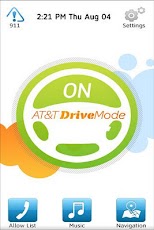Kudos to AT&T for its New "It Can Wait" Campaign on Texting While Driving
AT&T produced video
AT&T now has a website ItCanWait.com with videos about texting and driving and the danger as well as information on pledging not to text. Check it out!
39 states now ban texting while driving.
CTIA’s position is confusing due to a web mixup. If you search for consumer information on their website on tips for safety and driving, you get caught in a loop between this URL and this other URL. (When CTIA fixes this I will post updated information.)
On the advocacy part of the CTIA website one finds this statement:
CTIA-The Wireless Association® and the wireless industry believe that when it comes to using your wireless device behind the wheel, it’s important to remember safety always comes first and should be every driver’s top priority. While mobile devices are important safety tools, there’s an appropriate time and an inappropriate time to use them.
The wireless industry defers to consumers and the driving legislation they support – whether that’s hands-free regulations or bans on talking on their mobile devices while driving.
At the same time, we believe text-messaging while driving is incompatible with safe driving, and we support state and local statutes that ban this activity while driving.
We also agree with proposals that restrict or limit cellular use by inexperienced or novice drivers. Just as many states have graduated drivers' laws, such as restricting the number of passengers or nighttime hours of driving, the industry believes restricting a young driver's use of wireless while becoming better-skilled at the primary driving tasks makes sense.
The NY Times reports that David D. Teater, senior director of the National Safety Council, said he was pleased to see telecommunications companies, including AT&T, no longer lobbying against laws aimed at curbing driver distraction caused by electronic devices. “We’d love their support on the legislative side,” he said of AT&T’s position. “But the fact they’re not opposing us is good.”
On Sept. 30, AT&T will offer a free, revised version of its DriveMode app for Android and BlackBerry phones that will automatically disable texting when the phone is traveling more than 25 miles an hour.
While all the carriers discourage texting and driving to some degree and some discourage teenage use of cellphones when driving, they are notably silent on the general issue of cellphone voice use while driving. I recall a decade ago Chmn. Hundt urged the cellphone industry and the auto industry to collaborate on a standard for hands free cell use in cars - not much came of it. Of course, now it is not certain if hands free cellphone use is actually any safer than handset use.
Communications technology should enhance life, not threaten it.




![Validate my RSS feed [Valid RSS]](valid-rss-rogers.png)

